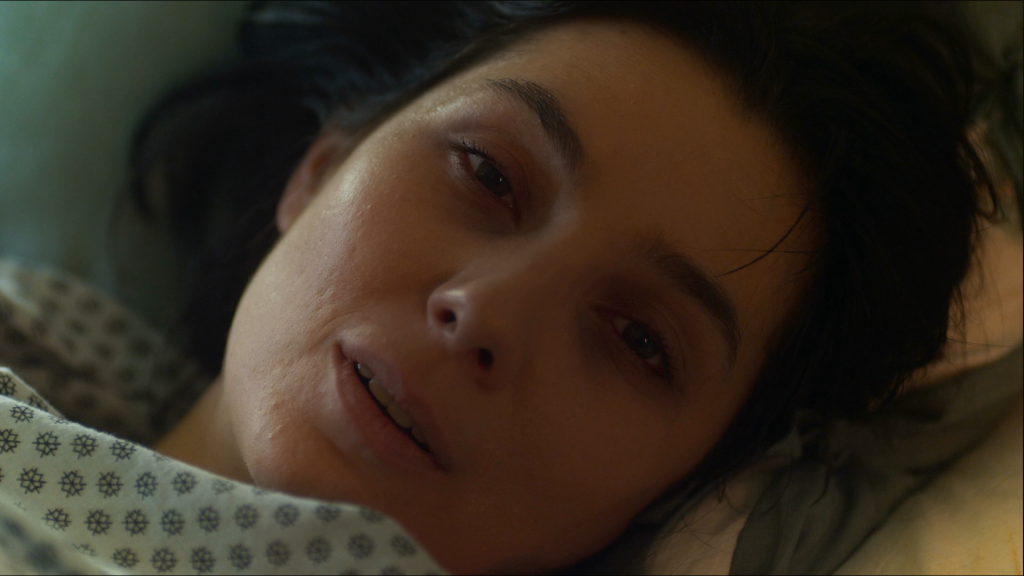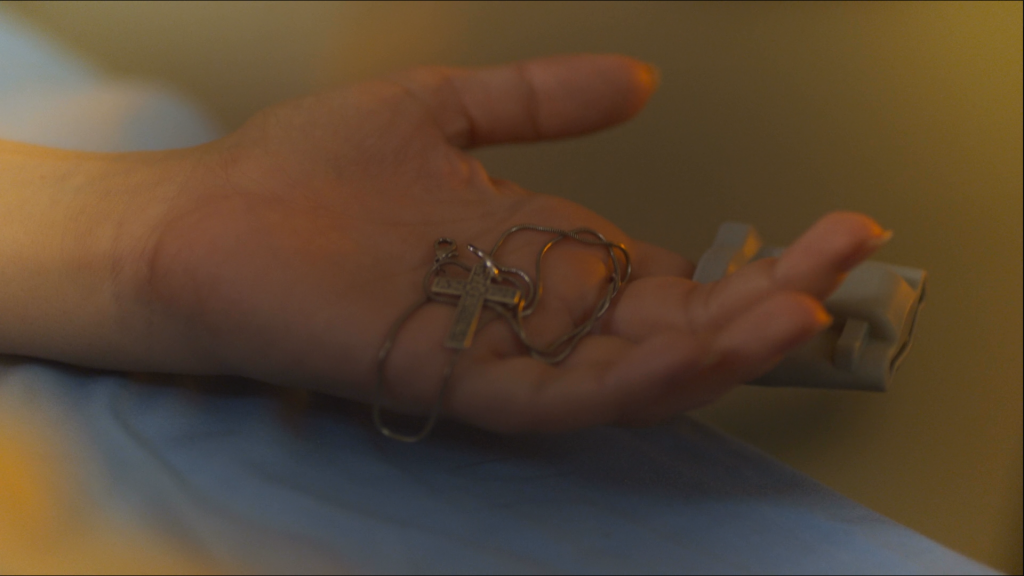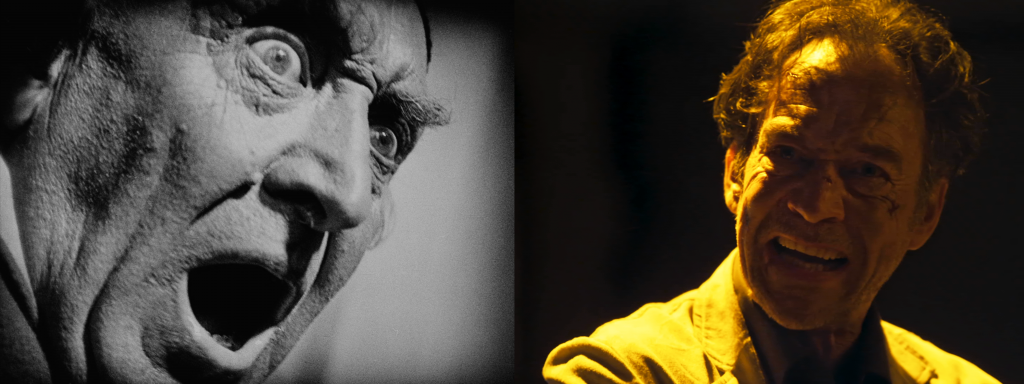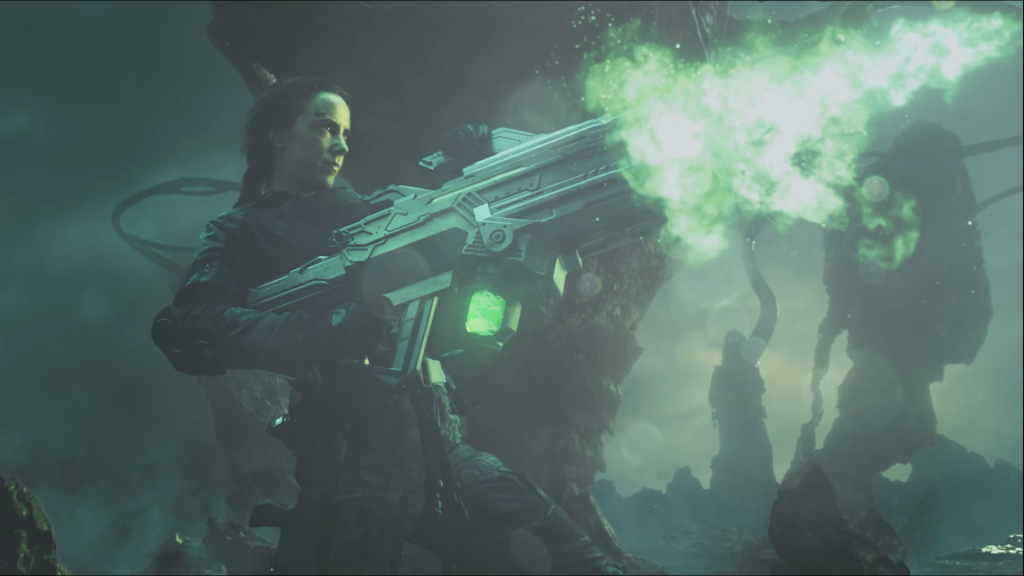This week, The Year’s Work in Medievalism published my paper “Channeling Joan of Arc in Doom: Annihilation (2019)” examining the latest Doom movie directed by Tony Giglio.
It is available for free via open access, but here are some of the highlights.
Writer/Director Tony Giglio chose a female lead for Doom: Annihilation, the first in the Doom franchise of video games, books, and film. Like a true Gen Xer, he went with what he knew best, basing the character on Ellen Ripley, Sarah Connor, and Joan of Arc. Speaking of Ripley, Anat Zanger saw her as a Joan of Arc in disguise in Alien 3, examining the common themes in her story with Joan. More on that here.

Although Joan Dark is no saint—she’s curses like a sailor, is no virgin, and lost her faith long ago—Giglio wanted an “angel” to fight demons. Dark experiences visions like her namesake, seeing her dying mother throughout the film giving her a cross and inspiring her.


The obvious comparisons with Joan Dark’s namesake seem to end there, but a deeper reading reveals more in common w/ the two. Like Joan, Dark has scars from previous battles just as Joan was wounded at last 3 times in via arrows and rocks. Dark even has a wound in the chest.

Dark is also adept with weaponry including guns and chainsaws to dispense of zombified humans and demons. She also has no trouble picking up the fabled BFG for the first time and employing it just as Joan quickly learned how to deploy cannons with remarkable skill.

Still from Doom: Annihilation (Universal Pictures Home Entertainment, 2019)
Dark was living with failure in battle that got her demoted and her unit sent to the Phobos moon of Mars on a “shit assignment.” Similarly Joan was defeated outside Paris, losing her luster, and was relegated to lesser opponents she did not want to fight. Both did their duty.

Still from Doom: Annihilation (Universal Pictures Home Entertainment, 2019)
Dark’s comrades are vocal in their disappointment with her, and they can’t even stand to be in the same room w/ her. We have a glimpse of what it might have been like for Joan after her defeat at Paris, especially after spending a month besieging and failing to capture La Charité in December 1429.

Still from Doom: Annihilation (Universal Pictures Home Entertainment, 2019)
Later in the film, a scientist (turned evil) antagonizes Dark, quoting from her trial. His methodical inquiry is reminiscent of an assessor from Joan of Arc’s trial. Dark stands alone, accused and not defending herself. La passion de Jeanne d’Arc, anyone?

The scientist continues his tirade, methodically quoting the trial transcript like it was an inquisition. At his fever pitch, a shadow drops across his face to show his complete turn to darkness. Not as claustrophobic as La passion de Jeanne d’Arc, but its a good imitation.

Like Joan of Arc and Ellen Ripley (Alien 3), Joan Dark has her own encounters with fire. There is of course the BFG that she uses thoroughly in the climax while in Hell.

She also jumps through a fiery portal in hopes of escaping Hell. Like Ripley, she choose her own fate. And like Joan, that fate featured fire.

Finally, when Dark tries to shut down one of Hell’s portals, warning male scientists about what she had experienced, they don’t believe her. When she gets aggressive, they apprehend and drug her to protect their work. Joan’s assessors didn’t believe her visions either.

Still from Doom: Annihilation (Universal Pictures Home Entertainment, 2019).
Doom: Annihilation features some of Joan of Arc’s romantic story, but it also brings to focus some aspects of Joan’s career that few movies focus on such as the period between her failure at Paris and her capture at Compiègne.
I’ve got plenty more to say about the film’s use of Joan of Arc, but those are the cliff notes. You can read more via the open access journal here.
Thanks for reading.

